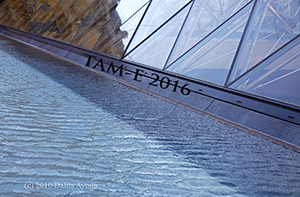In the light of Lehmann's (1995) paradigmatic and syntagmatic parameters of grammaticalisation, this paper aims to investigate to what extent so-called “evidential languages”, such as Tibetan, present a system of evidentiality that is more grammaticalised than the system of “non-evidential” languages, such as English (see also Squartini 2007, Cornillie 2007). The study is based on a 10-hour contrastive corpus that was specifically collected for the study (Cambridge Student Corpus and Tibet Student Corpus), and acceptability questionnaires that native speakers of Tibetan and English answered.
It can be argued that the Tibetan evidential system has reached the ultimate stage of grammaticalisation since it mainly functions with obligatory verbal inflections and enclitics (the direct present suffix -gi.'dug, the direct past suffix -song, the inferential perfect suffix
-bzhag and the hearsay enclitic -ze) appearing in a closed paradigm and showing very advanced signs of phonological and semantic integrity (DeLancey 1986, Tournadre 1996, Mélac 2014).
The English evidential system is undoubtedly more morphologically scattered, but it is clearly not entirely lexical. The English modal must and should belong to a closed paradigm with little syntagmatic variability. Perception copulas (look, sound, feel...) form another closed paradigm with a wide propositional scope. Moreover, when sentence-initial Looks like and Sounds like get reduced (pronoun dropping), they undergo at the same time a semantic shift towards inferential evidentiality (see also López-Couso & Méndez-Naya 2014). Finally, constructional theticals (see Kaltenböck et al 2011), such as I guess or I suppose, combine paradigmatic and syntagmatic features that show a certain degree of grammaticalisation as well.
This paper will provide several corpus-based examples (from the CSC, the COCA, the COHA, and the BNC) which indicate that the grammaticalisation of evidentiality is observable in both English and Tibetan, but is more or less manifest depending on the criteria selected.
- Autre

 PDF version
PDF version
